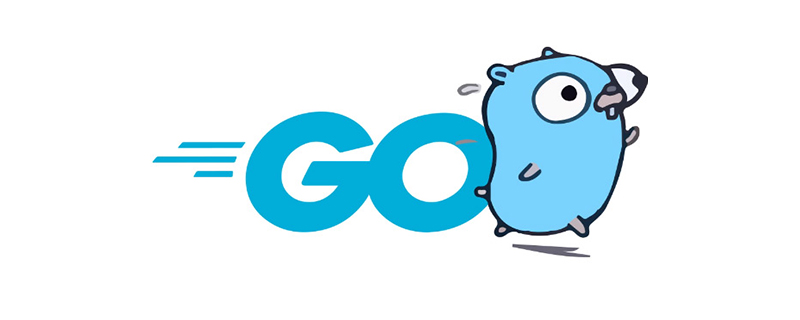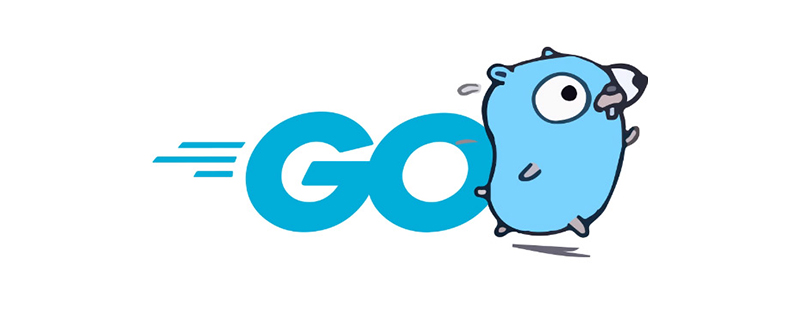
Golang is a programming language developed by Google that has unique immutability properties when handling strings. In Golang, strings are immutable, which means that once a string is created, its content cannot be modified in place. This article will give readers a better understanding of the immutability of strings in Golang through specific code examples.
First, let us look at a simple example to splice strings:
package main
import "fmt"
func main() {
str1 := "Hello"
str2 := "World"
result := str1 + " " + str2
fmt.Println(result)
}In the above code, we first created two string variables str1 and str2, and then concatenate the two strings through the operator, and assign the result to the variable result. In Golang, every time a string is operated on, a new string is created and the result is assigned to a new variable. The original string variable does not change.
Next, let’s look at another example and try to modify a certain character of a string:
package main
import "fmt"
func main() {
str := "Hello"
// 试图修改字符串的第一个字符为大写
str[0] = 'H'
fmt.Println(str)
}In the above code, we try to change the string str The first character is changed to uppercase H, but when we compile and run this code, an error message will appear: cannot assign to str[0]. This is because strings are immutable in Golang and one character cannot be modified directly.
Due to the immutability of strings, Golang provides some methods to perform string operations. For example, the functions in the strings package can be used for splicing, interception, replacement and other operations. Here is an example using the functions from the strings package:
package main
import (
"fmt"
"strings"
)
func main() {
str := "Hello, World!"
// 使用strings.ToUpper将字符串转换为大写
upperStr := strings.ToUpper(str)
fmt.Println(upperStr)
// 使用strings.Replace替换字符串中的部分内容
replacedStr := strings.Replace(str, "Hello", "你好", 1)
fmt.Println(replacedStr)
// 使用strings.Split按照逗号分割字符串
parts := strings.Split(str, ", ")
for _, part := range parts {
fmt.Println(part)
}
} In the above example, we have used the strings.ToUpper function to convert the string to uppercase, The strings.Replace function replaces part of the content in the string, and the strings.Split function splits the string into multiple parts according to commas. These functions will return a new string without changing the original string.
To summarize, strings in Golang are immutable, that is, their contents cannot be modified once created. Therefore, when operating on strings, you need to note that each operation will create a new string. Through the demonstration of sample code, I believe readers will have a deeper understanding of the immutability feature of strings in Golang.
The above is the detailed content of Understanding the immutable nature of strings in Golang. For more information, please follow other related articles on the PHP Chinese website!
 php怎么将16进制字符串转为数字Oct 26, 2021 pm 06:36 PM
php怎么将16进制字符串转为数字Oct 26, 2021 pm 06:36 PMphp将16进制字符串转为数字的方法:1、使用hexdec()函数,语法“hexdec(十六进制字符串)”;2、使用base_convert()函数,语法“bindec(十六进制字符串, 16, 10)”。
 php怎么将字符串转换成小数Mar 22, 2023 pm 03:22 PM
php怎么将字符串转换成小数Mar 22, 2023 pm 03:22 PMPHP 是一门功能强大的编程语言,广泛应用于 Web 开发领域。其中一个非常常见的情况是需要将字符串转换为小数。这在进行数据处理的时候非常有用。在本文中,我们将介绍如何在 PHP 中将字符串转换为小数。
 golang怎么检测变量是否为字符串Jan 06, 2023 pm 12:41 PM
golang怎么检测变量是否为字符串Jan 06, 2023 pm 12:41 PM检测变量是否为字符串的方法:1、利用“%T”格式化标识,语法“fmt.Printf("variable count=%v is of type %T \n", count, count)”;2、利用reflect.TypeOf(),语法“reflect.TypeOf(变量)”;3、利用reflect.ValueOf().Kind()检测;4、使用类型断言,可以对类型进行分组。
 php 字符串长度不一致怎么办Feb 07, 2023 am 09:58 AM
php 字符串长度不一致怎么办Feb 07, 2023 am 09:58 AMphp字符串长度不一致的解决办法:1、通过mb_detect_encoding()函数查看字符串的编码方式;2、通过mb_strlen函数查看具体字符长度;3、使用正则表达式“preg_match_all('/[\x{4e00}-\x{9fff}]+/u', $str1, $matches);”剔除非中文字符即可。
 go语言怎么删除字符串中的空格Jan 17, 2023 pm 02:31 PM
go语言怎么删除字符串中的空格Jan 17, 2023 pm 02:31 PM删除方法:1、使用TrimSpace()函数去除字符串左右两边的空格,语法“strings.TrimSpace(str)”;2、使用Trim()函数去除字符串左右两边的空格,语法“strings.Trim(str, " ")”;3、使用Replace()函数去除字符串的全部空格,语法“strings.Replace(str, " ", "", -1)”。
 php字符串函数学习:怎么去掉前面的字符Mar 20, 2023 pm 02:33 PM
php字符串函数学习:怎么去掉前面的字符Mar 20, 2023 pm 02:33 PM在开发PHP应用程序时,有时我们需要去掉字符串前面的某些特定字符或者字符串。在这种情况下,我们需要使用一些PHP函数来实现这一目标。本文将介绍一些PHP函数,帮助您轻松地去掉字符串前面的字符或字符串。
 php怎么将字符串转为布尔类型Jul 01, 2021 pm 06:36 PM
php怎么将字符串转为布尔类型Jul 01, 2021 pm 06:36 PM转换方法:1、在转换变量前加上用括号括起来的目标类型“(bool)”或“(boolean)”;2、用boolval()函数,语法“boolval(字符串)”;3、用settype()函数,语法“settype(变量,"boolean")”。
 php字符串部分乱码怎么办Jan 20, 2023 am 10:18 AM
php字符串部分乱码怎么办Jan 20, 2023 am 10:18 AMphp字符串部分乱码的解决办法:1、使用“mb_substr(strip_tags($str),0,-1,'UTF-8');”截取字符串;2、使用“iconv("UTF-8","GB2312//IGNORE",$data)”转换字符集即可。


Hot AI Tools

Undresser.AI Undress
AI-powered app for creating realistic nude photos

AI Clothes Remover
Online AI tool for removing clothes from photos.

Undress AI Tool
Undress images for free

Clothoff.io
AI clothes remover

AI Hentai Generator
Generate AI Hentai for free.

Hot Article

Hot Tools

SAP NetWeaver Server Adapter for Eclipse
Integrate Eclipse with SAP NetWeaver application server.

MinGW - Minimalist GNU for Windows
This project is in the process of being migrated to osdn.net/projects/mingw, you can continue to follow us there. MinGW: A native Windows port of the GNU Compiler Collection (GCC), freely distributable import libraries and header files for building native Windows applications; includes extensions to the MSVC runtime to support C99 functionality. All MinGW software can run on 64-bit Windows platforms.

VSCode Windows 64-bit Download
A free and powerful IDE editor launched by Microsoft

MantisBT
Mantis is an easy-to-deploy web-based defect tracking tool designed to aid in product defect tracking. It requires PHP, MySQL and a web server. Check out our demo and hosting services.

mPDF
mPDF is a PHP library that can generate PDF files from UTF-8 encoded HTML. The original author, Ian Back, wrote mPDF to output PDF files "on the fly" from his website and handle different languages. It is slower than original scripts like HTML2FPDF and produces larger files when using Unicode fonts, but supports CSS styles etc. and has a lot of enhancements. Supports almost all languages, including RTL (Arabic and Hebrew) and CJK (Chinese, Japanese and Korean). Supports nested block-level elements (such as P, DIV),






